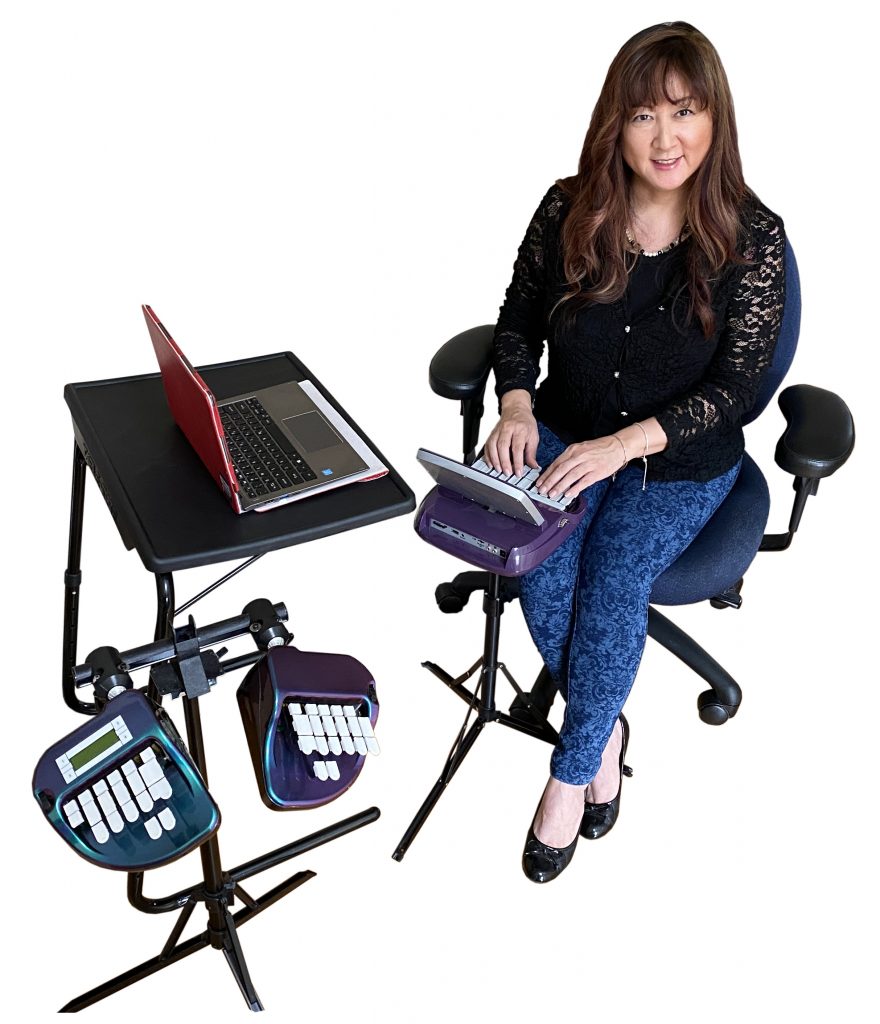Behind the Scenes: The Hidden World of Court Reporters Revealed!
Imagine a courtroom filled with tension, where every word uttered holds immense weight and significance. While lawyers present their cases and judges make crucial decisions, there is a silent observer meticulously capturing every word spoken. These unsung heroes are court reporters, whose role is often overlooked but essential in the pursuit of justice. In this article, we will delve into the hidden world of court reporters, exploring their duties, the skills they possess, and the challenges they face. Join us as we unveil the fascinating behind-the-scenes work of these dedicated professionals.
Table of Contents
Introduction: Unveiling the Unsung Heroes
Court reporters play a crucial role in the legal system, capturing verbatim records of court proceedings. While their work often goes unnoticed, it is indispensable for maintaining an accurate account of trials, depositions, and other legal proceedings. Let’s explore the multifaceted responsibilities of court reporters and gain a deeper understanding of their significance.
The Role of Court Reporters

Court reporters are responsible for creating precise transcripts of legal proceedings. They use stenotype machines or voice recognition technology to record every word spoken. Their primary duty is to ensure an accurate and complete record of the proceedings, capturing all verbal exchanges, gestures, and reactions in real time. Court reporters also mark exhibits and identify speakers to facilitate easy reference during the trial.
The Essential Skills of Court Reporters
To excel in their profession, court reporters need a unique set of skills. Firstly, they must possess exceptional listening skills to capture and transcribe every spoken word accurately. Attention to detail is crucial, as even a minor error can have significant consequences. Additionally, court reporters should have excellent language skills, including a deep understanding of legal terminology and jargon. Their ability to maintain focus and concentration during lengthy proceedings is also vital.
The Technology Behind Court Reporting
Advancements in technology have revolutionized court reporting practices. Stenotype machines, specialized keyboards with multiple keys pressed simultaneously, enable court reporters to record conversations at incredible speeds. Voice recognition software has also gained popularity, allowing reporters to dictate proceedings, which the software then transcribes. These technological tools enhance efficiency and accuracy in the court reporting process.
Challenges Faced by Court Reporters
Court reporters face various challenges in their day-to-day work. The fast-paced nature of courtrooms demands exceptional speed and accuracy. Legal jargon, complex testimonies, and cross-talk among speakers can pose difficulties in transcribing. Moreover, challenging acoustic environments, such as crowded courtrooms or witnesses speaking softly, present additional hurdles. Despite these challenges, court reporters strive to provide a comprehensive and accurate record of proceedings.
The Importance of Accuracy in Court Reporting
Accuracy is paramount in court reporting. The transcripts produced by court reporters serve as official records and are essential for appeals, legal research, and maintaining an accurate account of events. The smallest errors can have far-reaching consequences, potentially jeopardizing the outcome of a trial or leading to miscarriages of justice. Court reporters bear the responsibility of ensuring that the judicial process is based on reliable and precise information.
Ethics and Confidentiality in Court Reporting
Court reporters adhere to a strict code of ethics, which includes maintaining confidentiality. They handle sensitive information and must ensure that all proceedings remain private and secure. Confidentiality is crucial to protect the integrity of the legal system and the privacy of those involved in the proceedings. Court reporters understand the gravity of their role and operate with the utmost professionalism and integrity.
Training and Certification for Court Reporters
Becoming a court reporter requires specialized training and certification. Aspiring court reporters can pursue formal education programs that teach stenography or voice writing techniques. These programs equip students with the necessary skills to transcribe court proceedings accurately. Additionally, many jurisdictions require court reporters to obtain certification or licensure to ensure their competency and adherence to professional standards.
Career Opportunities in Court Reporting
Court reporting offers a range of career opportunities beyond traditional courtroom settings. Reporters can work in depositions, arbitrations, corporate meetings, and public events where an accurate record is necessary. Some court reporters specialize in providing real-time transcription services, enabling live access to the proceedings. The demand for qualified court reporters remains steady, offering a stable and fulfilling career path.
The Future of Court Reporting
As technology continues to evolve, court reporting is experiencing significant transformations. Real-time reporting, remote transcription services, and automated speech recognition systems are shaping the future of this profession. While these advancements enhance efficiency, the human element of court reporting remains crucial. The ability to interpret nonverbal cues, grasp context, and ensure accuracy is an inherent quality possessed by skilled court reporters.
Conclusion
Court reporters play a vital role in the judicial system, capturing the intricacies of legal proceedings with precision and accuracy. Their behind-the-scenes work ensures that the justice system functions effectively and transparently. As we unveil the hidden world of court reporters, we appreciate their dedication, expertise, and commitment to upholding justice. Let us not overlook their invaluable contribution to the pursuit of truth.
In the fast-paced world of courtrooms, where justice hangs in the balance, court reporters stand as silent guardians, capturing the spoken word and preserving it for posterity. Their dedication, skill, and unwavering commitment to accuracy make them unsung heroes of the legal system. So, the next time you find yourself in a courtroom, take a moment to appreciate the hidden world of court reporters—the guardians of truth and justice.
FAQs
A court reporter is responsible for creating verbatim transcripts of legal proceedings, capturing every spoken word, gesture, and action in the courtroom with precision and accuracy.
Court reporters use stenographic machines or voice-writing technology to record proceedings. They type or speak into a specialized device that translates their input into written text, creating a real-time transcript or a recorded copy for later transcription.
Court reporters cover a wide range of legal proceedings, including trials, depositions, hearings, arbitrations, and administrative proceedings. They ensure an official record is created for future reference.
Yes, skilled court reporters are trained to capture spoken words with a high level of accuracy, often achieving 98% or higher accuracy rates. They are proficient in shorthand or voice-writing techniques, enabling them to keep pace with the fast-paced nature of legal proceedings.
Court reporters may be tasked with transcribing audio or video recordings when necessary. They listen to the recordings and produce written transcripts, ensuring an accurate record of the proceedings.
Court reporters undergo specialized training and education programs to develop their stenographic or voice-writing skills. They must have exceptional language proficiency, attention to detail, excellent listening skills, and the ability to work in high-pressure environments.
Yes, court reporters equipped with real-time reporting technology can produce transcripts in real-time as the proceedings unfold. This allows judges, attorneys, and other parties to access an immediate, live feed of the transcript on their devices.
Court reporters are typically certified through professional organizations or state licensing boards. Certification requirements may include passing written exams, demonstrating proficiency in transcription accuracy, and adhering to ethical standards.
Absolutely! Court reporters are bound by strict confidentiality rules and ethical guidelines. They are entrusted with sensitive and confidential information discussed during legal proceedings and must maintain its confidentiality.
Yes, court reporters can provide transcripts in various formats, including printed hard copies, electronic files, and synchronized text with audio or video recordings. They adapt to the specific needs and requirements of their clients.







